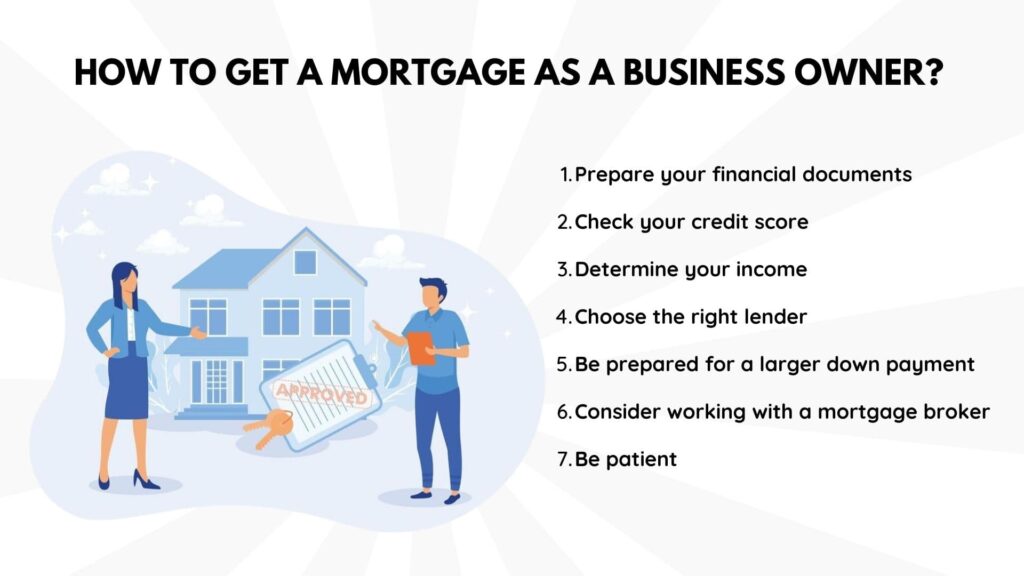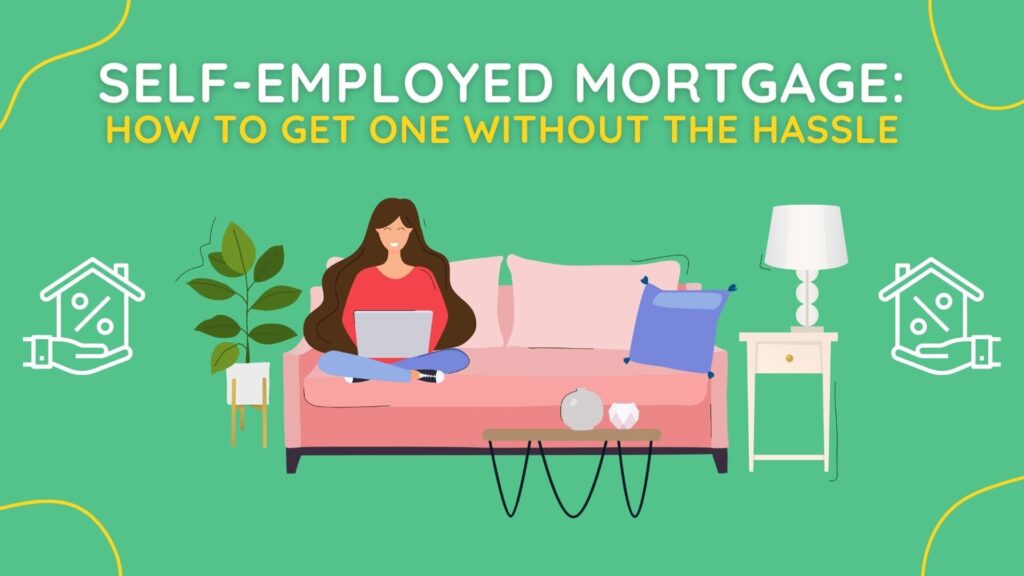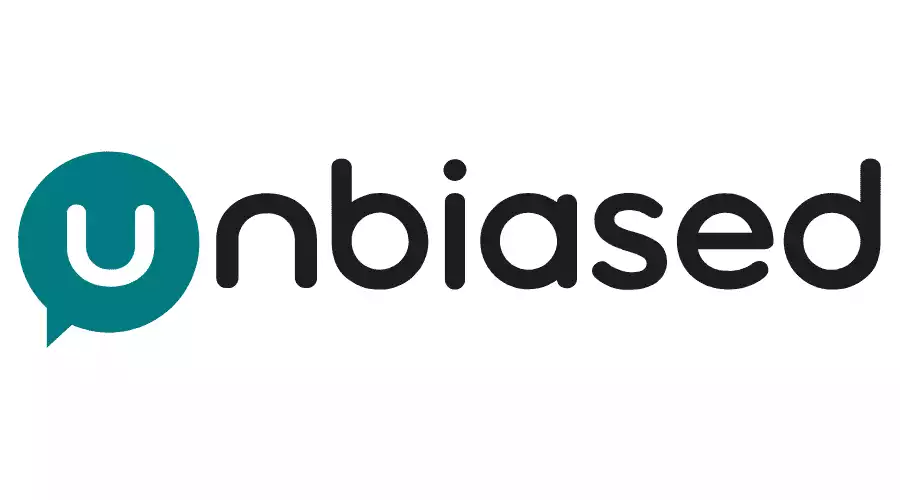
Sammie Ellard-King
I’m Sammie, a money expert and business owner passionate about helping you take control of your wallet. My mission with Up the Gains is to create a safe space to help improve your finances, cut your costs and make you feel good while doing it.

Quickfire Roundup:
As a self-employed individual looking to secure a mortgage, the good news is that this is more than possible.
There may be a few more hoops to jump through so that you can prove your income, but if you can do this, you’re able to access the same mortgage deals as anyone else.
A mortgage advisor is a must so that you can discuss your personal situation and fully prepare your mortgage application. This will boost your chances of getting your mortgage approved.
When looking at how to get a mortgage as a business owner, you’ll find that you face a unique set of challenges.
As with all mortgages, there is a need to prove your income but when you’re a self employed business owner or a company director, you lack an employer who can vouch for your earnings.
The good news is that there are plenty of mortgage lenders out there who are willing to help. In fact, if you get your mortgage application right, most lenders generally entertain the idea of granting mortgages to business owners.
As you keep reading, I’m going to explore just what is meant by a self-employed mortgage, the company records you’ll need and how getting a mortgage is probably easier than you expected.
If you’ve heard enough already check out Unbiased who can put you in touch with the perfect advisor for a business owner mortgage.
Boon Brokers are one of the UKs leading online mortgage brokers. They have a 5-star excellent Trustpilot rating with over 543 reviews.
- No mortgage fees
- Whole of market access
- Free online consultations
- Directly authorised by the FCA
- No in person meet ups
Table of Contents
What mortgages are available for self-employed people?
The mortgages available for the self-employed are the same as anyone elses. All that changes is the steps and requirements.
You identify the best mortgage deal, go through the application process and supply the proof of income etc that the lender asks for.

The only difference here is that most lenders will ask for more proof when it comes to showing them how much you earn and that you can afford the monthly mortgage payments.
The proof that you require will depend on your trading style. If you’re a sole trader or a director of a limited company, the exact requirements will be a little different.
That makes sense as these trading styles have different requirements when it comes to accounts.
With your own business, you have access to the same mortgages as anyone else. There is no such thing as a self-employed mortgage.
There used to be mortgages known as self-certification that were open to self-employed people only.
These mortgage types allowed people to declare their income without proving it.
This came with certain risks to lenders, as well as borrowers, and these types of mortgages were banned after the financial crisis of 2007 to 2009.
What documents and checks do lenders need for business owner mortgage approval?
When it comes to the first checks and documents needed for a self-employed mortgage, these are the same as what’s needed for anyone else applying for a mortgage. They include:
- A credit check – a good credit score opens up better deals. Bad credit may require you to seek advice from a specialist broker
- Passport or driving license to prove your identity
- Around 6 months’ worth of bank statements as most lenders will assess your spending habits. Business accounts and personal accounts will need to be seen
- Prove that you have a deposit available (although bank statements may show this)
Being self-employed means that you’re not going to have the same proof of income as other people. This means that many lenders, if not all, will also ask for:
- Two years or more of certified accounts. This shows your track record and should be prepared by a qualified accountant
- SA302 forms showing details of tax returns to HMRC for the last two to three years
If you’re worried about getting a mortgage hit up Unbiased below.
They ask you a few questions about your situation and match you with a specialist advisor. Plus they donate to charity when you have a call with them.
Match with a mortgage advisor that suits your unique financial goals, and when you do, Unbiased donates to the Samaritans.
Assessing mortgages and how much you can borrow
A mortgage lender will look at the net profit for the last two to three years for sole traders. They will use these figures to take an average of your earnings and use this as your annual income.
Company directors will be assessed by looking at their share of net profit or the levels of salary and dividends.
So, how much do you need to get a mortgage? Well, all of these factors play into a lenders decision. Salary, dividends and company profits.
Applying for a mortgage as a contractor is just a little different. Many lenders will take your average annual income over the last few years.
If your income varies in a major way from year to year, they will take your lowest earnings and use these as a baseline. There are some lenders that will arrive at your annual income by basing it on your day rate.
Just be prepared it’s not as simple as a standard residential mortgage.
How to boost your chances to secure a mortgage
The first thing to consider is applying for the right mortgage with the best lenders for your particular circumstances.
The best option for business owners here is to make use of a mortgage broker to find a good deal.
Aside from these points, there are other steps to take that can help you get a mortgage offer and make the application process smoother.
Get your SA203 forms ready
High street lenders and specialist lenders will all want to see your SA302 forms when you apply for a mortgage.
These forms show your income tax calculation and evidence of your earnings. The majority of lenders generally want to see at least three of these.
Instruct an accountant
Yes, you can put together your own trading accounts whether you’re self-employed or a company director in a limited company. However, lenders much prefer to see that your accounts have been prepared by an expert.
This means a professional accountant. Just be wary though – a good accountant tries to save you and your business tax. The lower your tax liability, the lower your net profits will be.
Save a large deposit
The bigger the deposit you have, the more mortgages will be open to you.
A healthy deposit is always welcomed by lenders as it limits the risk that they’re exposed to.
Put some time aside to do a simple budget and start saving towards a house deposit.
Work on your credit file
Poor credit will seriously impact your chances when looking to secure a mortgage. This applies to those with their own business and employees alike.
Be sure that you understand your credit file and the steps that you can take to keep it healthy/improve it.
If you do have credit issues, not all is lost: mortgage brokers can still help you to find the right lender that may be able to help.

What if I have a new business?
As a new start-up or small business, you’ll struggle when it comes to getting a mortgage. That’s because lenders like to see two to three years of company accounts.
That being said, if you’ve recently started a business that is similar to your last full-time job, some lenders will take this on board.
You’ll benefit from the advice of a specialist mortgage broker and you may well need to approach specialist lenders, rather than a typical high street lender.
How much can I borrow when I get a mortgage as a business owner?
The answer here is that it depends. Lenders will look at your earnings and the size of your deposit. The more you earn, and the larger deposit you have, the better.
Generally, lenders will allow you to borrow 4.5 times your income, but this can vary depending on your personal circumstances.
The best advice for any business owner is to put as much aside as possible for a deposit. No matter which lender you approach, the bigger your deposit the better your chances of success.
Are interest rates higher for self-employed mortgages?
No, there’s no rule that says you’ll be charged more interest as a company director or sole trader. The mortgage deal you access will be the same as an employed person with a comparable income.
What will really impact your interest rate is your credit file and the size of your deposit. Any lender will see these as extra security, lessening the risk of you defaulting on payments.
Self employed mortgage advisors
Finding the best mortgage advisor for self employed individuals isn’t as hard as you think.
Company directors and sole traders can make use of our self employed mortgage calculator to work out their costs before chatting to an advisor.
However, to have a real idea of what you’ll qualify for it’s best to use the services of a mortgage broker. If you have poor credit to contend with, you may need to search for a specialist broker to assist you.
Honestly if you’re in this position hit up Boon Brokers just below they have access to the whole of market and are totally free to do your consultation.
Boon Brokers are one of the UKs leading online mortgage brokers. They have a 5-star excellent Trustpilot rating with over 543 reviews.
- No mortgage fees
- Whole of market access
- Free online consultations
- Directly authorised by the FCA
- No in person meet ups
What about remortgaging?
Remortgaging when self-employed or as a business owner is pretty much the same process as you’ll find when you mortgage.
You will be under more scrutiny if you move lenders but if you stay with the same it’s a relatively easy process.
FAQ’s
How many years do you have to be self-employed to get a mortgage?
In the UK, most lenders require self-employed individuals to have at least two to three years of accounts or tax returns available when applying for a mortgage.
This history helps lenders assess the stability and profitability of your self-employment. Mortgages for self employed without accounts is pretty hard to come by!
However, there are a few lenders who may consider less than two years of accounts, particularly if you can demonstrate a reliable income or previous employment in the same line of work.
It’s always advisable to consult with a mortgage advisor or lender directly to understand their specific requirements.
Is it harder to get a mortgage if self-employed?
Yes, obtaining a mortgage can be more challenging if you’re self-employed due to the perceived instability of income compared to a traditional salaried role.
Lenders need to assess your ability to consistently meet mortgage repayments, and fluctuating income can make this assessment more complex.
Self-employed applicants generally need to provide more documentation, including two to three years of accounts or tax returns, to demonstrate their income.
However, with thorough financial records, a solid credit history, and potentially the assistance of a mortgage broker, many self-employed people successfully secure mortgages.
Can I get a mortgage with 6 months self-employed?
While most mortgage lenders in the UK prefer self-employed applicants to have at least two to three years of accounts or tax returns, a small number might consider an application with only six months of self-employment history.
These lenders will likely scrutinise your application closely, looking at factors such as your previous employment history, the viability of your business, projected income, and your credit score.
It’s advisable to seek advice from a mortgage broker who specialises in self-employed or contractor mortgages, as they’ll have a clearer idea of which lenders may consider your application.
However, it’s important to understand that the options may be limited, and interest rates may be higher due to perceived risk.
How many times my salary can I borrow for a mortgage self-employed?
The amount a self-employed person can borrow for a mortgage typically ranges between 4.5 to 5 times their annual income, which is similar to the multiples offered to those in full-time employment.
However, the exact amount depends on various factors, such as your credit score, outstanding debts, and the stability of your income.
For self-employed individuals, lenders usually base their calculations on the average profit over the last two to three years. It’s worth noting that some lenders may be more flexible than others, so working with a mortgage broker can help you navigate the options.
How many tax returns do you need to get a self-employed mortgage?
Most lenders in the UK typically require self-employed individuals to provide two to three years’ worth of accounts or tax returns when applying for a mortgage.
These documents allow the lenders to assess the stability of your income and the profitability of your business.
However, some lenders might consider an application with less than two years of financial records, especially if you can demonstrate a reliable income or a history of employment in the same line of work.
It’s always best to consult with a mortgage advisor or lender to understand their specific requirements.
Can I get a mortgage if I'm a sole trader?
Yes, you can get a mortgage if you’re a sole trader. However, as with other self-employed individuals, you’ll need to provide more documentation to prove your income.
This typically includes two to three years’ worth of accounts or tax returns. Lenders will usually consider your net profit as your income when deciding how much to lend.
Keep in mind that each lender may have their own criteria, and some might be more flexible than others.
Consulting with a mortgage broker can help you navigate the process and find a lender that suits your circumstances.
Final thoughts
Lenders are willing to give self- employed mortgages. The key is proving to these lenders that your business is earning enough money and that you can meet monthly mortgage payments.
If you ensure that your company accounts are clear and have all of the relevant documentation, you’ll find that there are plenty of options for business owners looking to get a mortgage.
You can access more deals by getting your credit report in a good state and by saving a healthy deposit.
With this all taken care of, you’ll have access to the same deals that everyone else does, regardless of employment status.
If you are struggling to meet any of the criteria, there are mortgage brokers and specialist lenders who may still be able to help.
Share on social media
Disclaimer: Content on this page is for informational purposes and does not constitute financial advice. Always do your own research before making a financially related decision.




